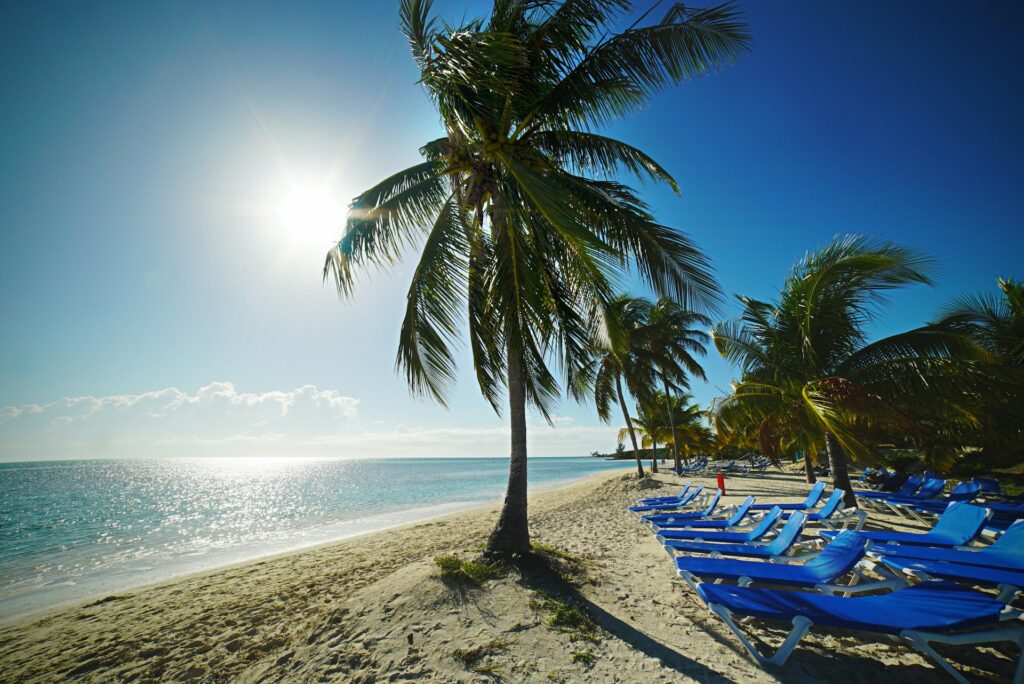The Bahamas has introduced comprehensive medical cannabis legislation to create the Bahamas Cannabis Authority which will oversee regulation of safe and effective use for a wide range of medical conditions while expunging records for minor cannabis possession. The legislation also recognizes the religious use of cannabis for the Rastafarian community and mandates training for healthcare providers.
Bahamas Medical Cannabis Bill Submitted to the House of Assembly


The recent introduction of medical cannabis legislation in the Bahamas by the Davis administration, under the leadership of Minister of Health and Wellness Dr. Michael Darville, marks a significant milestone in the Bahamian healthcare system.
This comprehensive legislative package, aimed at regulating the use of medical cannabis, not only demonstrates the government’s commitment to healthcare reform but also addresses long-standing demands from Bahamians suffering from various debilitating conditions.
For more news like this, along with all the latest in legalization, research, and lifestyle, download our free cannabis news app.
Addressing Urgent Healthcare Needs in the Bahamas
In his speech to the House of Assembly, Dr. Darville emphasized the urgent need for the legalization of medical cannabis in the Bahamas. He highlighted the real struggles of Bahamians suffering from chronic pain, epilepsy, cancer, and other serious health issues. These personal stories have driven the legislation, reflecting the government’s intent to provide legal access to treatments that have proven effective in other countries.
“The legislation is a response to calls for help, aiming to provide legal access to treatments that have proven effective in other countries,” explained Dr. Darville.
Creation of the Bahamas Cannabis Authority
At the heart of this legislative package is the creation of the Bahamas Cannabis Authority. This regulatory body will be responsible for overseeing the cultivation, production, and distribution of medical cannabis. Its mission will include ensuring that cannabis is used safely and effectively within the healthcare system, addressing concerns about potential misuse.
The cannabis bill establishes a controlled framework for medical cannabis, including provisions for licensing and oversight. This rigorous oversight aims to maintain high standards of safety and efficacy, ensuring that the medical cannabis program benefits patients while minimizing risks.
The legislation will allow for the prescription of cannabis for various medical conditions, including cancer, HIV/AIDS, multiple sclerosis, epilepsy, post-traumatic stress disorder, autism, sickle cell anemia, anxiety, and depression. This broad range of applications demonstrates the government’s recognition of cannabis as a versatile therapeutic option capable of significantly improving the quality of life for patients with these conditions.
Cannabis will also be removed from the list of dangerous substances in the Bahamas. This change will allow the expungement of records for individuals convicted of possessing 30 grams or less of cannabis, offering a fresh start to many who have been affected by past criminalization.
Religious Use and Training for Healthcare Professionals
The new legislation also acknowledges the cultural and religious importance of cannabis in the Bahamas, particularly for the Rastafarian community, by allowing the use of cannabis as a sacrament under a religious use license.
In conjunction with these measures, the legislation outlines the qualifications and training required for healthcare providers to prescribe and dispense medical cannabis in the Bahamas. This ensures that healthcare professionals are well-equipped to handle medical cannabis and maintain high standards of patient care and safety. The establishment of cannabis dispensaries, supervised by licensed pharmacists, is another critical element of this regulatory framework.
Ensuring Rigorous Enforcement and Public Education
While the introduction of this comprehensive legislative package is commendable, its success depends on effective enforcement. Rigorous monitoring and continuous evaluation will be essential to adapt to future developments in medical research and patient care. Ensuring that healthcare providers in the Bahamas are well-trained and that facilities meet strict standards will strengthen both patient rights and the credibility of the medical cannabis program.
Public education campaigns will also play a crucial role in the successful implementation of the medical cannabis program. These campaigns will inform the public about the benefits and risks associated with medical cannabis, helping to dispel prejudices and ensure that patients and healthcare providers in the Bahamas can make informed decisions based on evidence and best practices.
However, the legislation has not been without criticism. Some argue that it does not go far enough, pointing to countries like Jamaica with more liberal decriminalization policies. Nevertheless, the government’s cautious approach, starting with medical cannabis, will allow for the development of an evidence-based strategy for any future liberalization in the Bahamas.
—
(Featured image by Peter Hansen via Unsplash)
DISCLAIMER: This article was written by a third-party contributor and does not reflect the opinion of Hemp.im, its management, staff, or its associates. Please review our disclaimer for more information.
This article may include forward-looking statements. These forward-looking statements generally are identified by the words “believe,” “project,” “estimate,” “become,” “plan,” “will,” and similar expressions. These forward-looking statements involve known and unknown risks as well as uncertainties, including those discussed in the following cautionary statements and elsewhere in this article and on this site. Although the company may believe that its expectations are based on reasonable assumptions, the actual results that the company may achieve may differ materially from any forward-looking statements, which reflect the opinions of the management of the company only as of the date hereof. Additionally, please make sure to read these important disclosures.
First published in Newsweed, a third-party contributor translated and adapted the article from the original. In case of discrepancy, the original will prevail.
Although we made reasonable efforts to provide accurate translations, some parts may be incorrect. Hemp.im assumes no responsibility for errors, omissions or ambiguities in the translations provided on this website. Any person or entity relying on translated content does so at their own risk. Hemp.im is not responsible for losses caused by such reliance on the accuracy or reliability of translated information. If you wish to report an error or inaccuracy in the translation, we encourage you to contact us.



Comments are closed for this post.